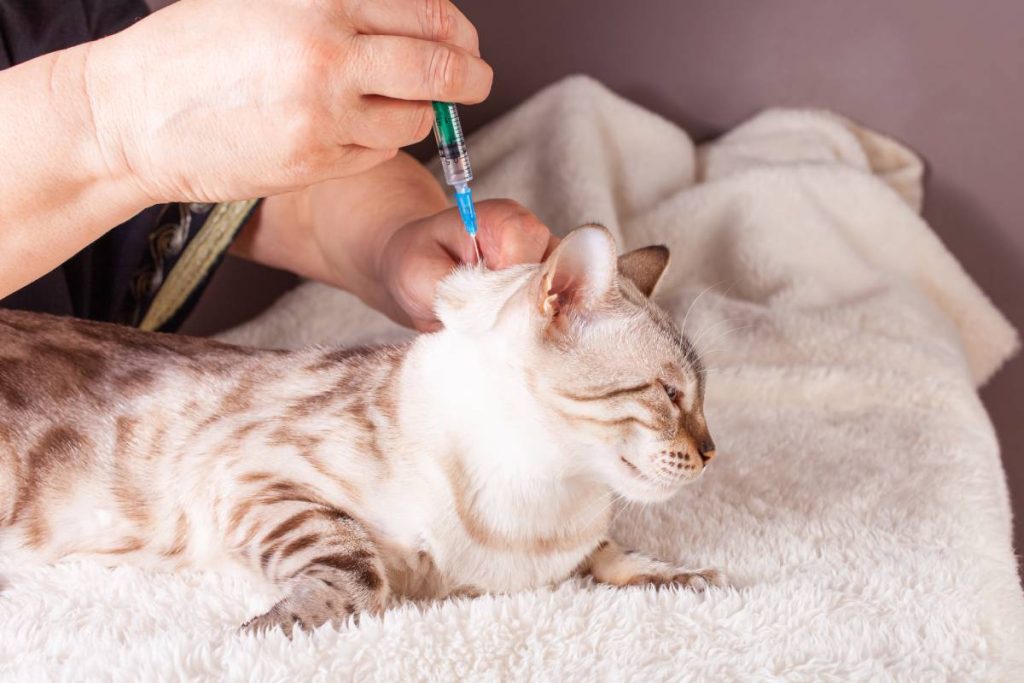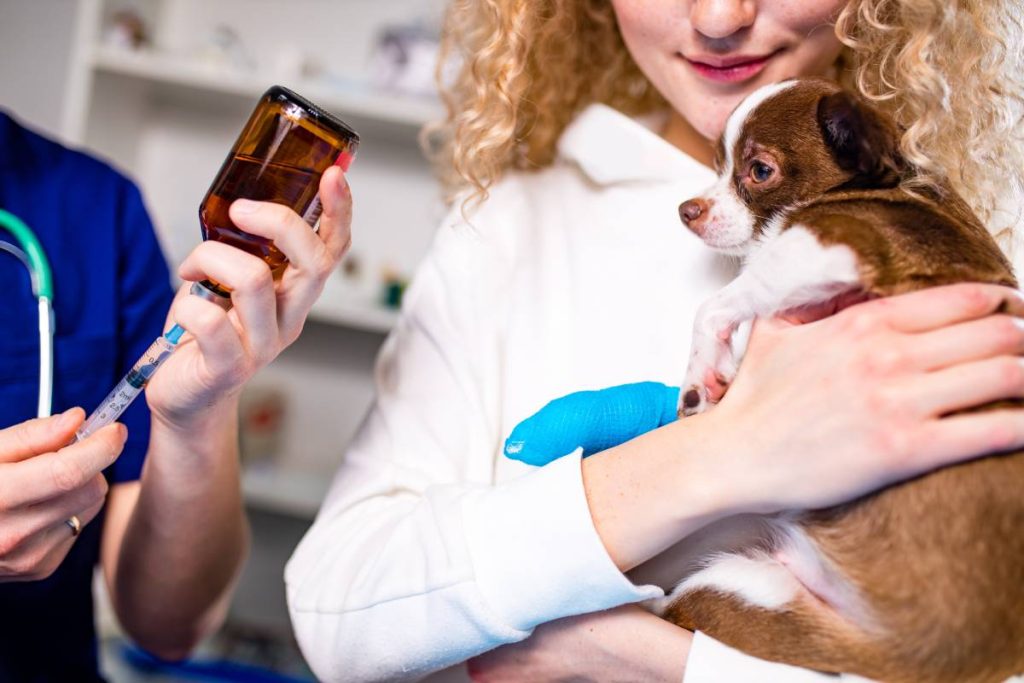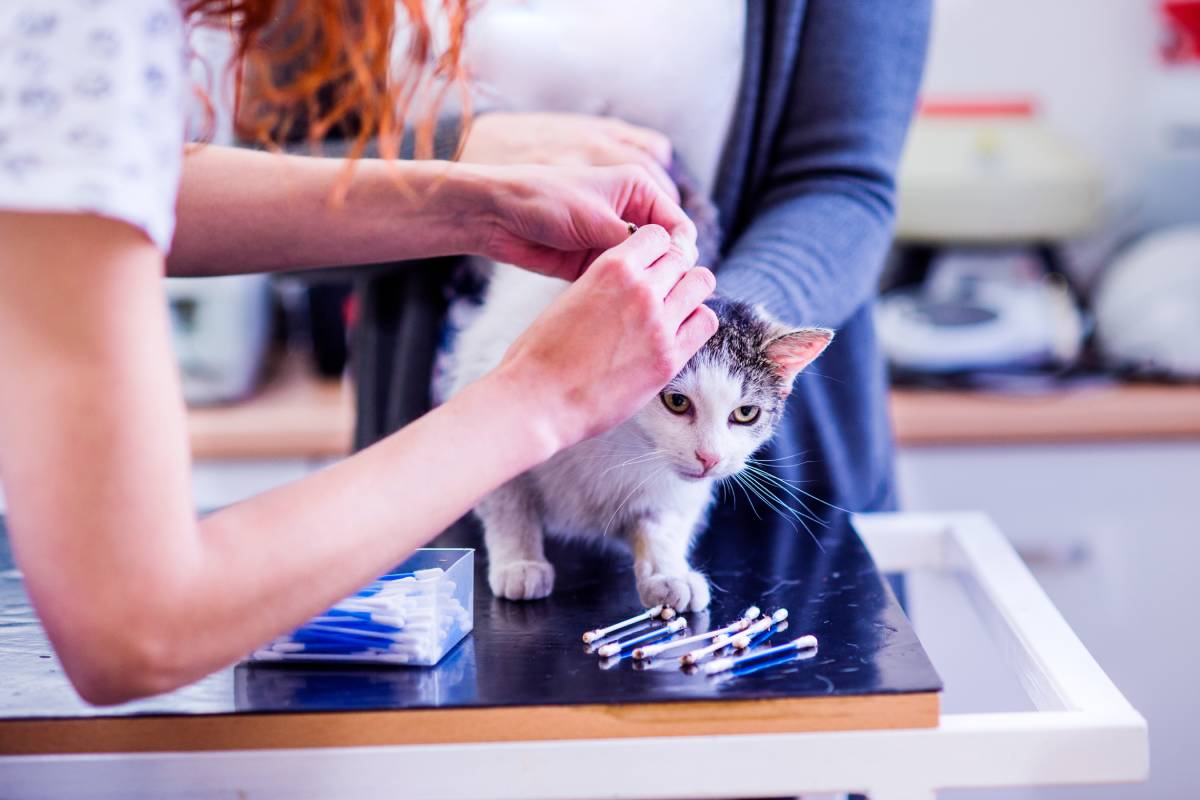Ensuring our pets’ well-being is a priority for all pet owners. Keeping your dog healthy involves vaccination, which shields them from various life-threatening diseases.
But what are the costs, which diseases do they guard against, and how often are they necessary? Explore these questions in our comprehensive guide.
You might also read:
Why should you vaccinate your pets?
Vaccinating your pet is essential for their health and safety. Here’s why:
- Prevent serious illnesses: Vaccines protect your puppy from severe diseases, avoiding pain and expensive treatments.
- Build immunity: Vaccines strengthen your puppy’s immune system, guarding against a range of infections.
- Protect the community: Vaccinated dogs contribute to preventing disease spread among other dogs.
- Ensure long-term health: Vaccinations provide lasting protection, reducing the risk of future health problems. Cost-effective: Investing in prevention through vaccination is more economical than dealing with the costs of treatment.

What vaccine do you need for your dog?
The specific vaccines your dog needs and the frequency of vaccination can vary depending on factors such as your dog’s age, lifestyle, geographic location, and overall health. However, some core vaccines are typically recommended for most dogs:
- Rabies Vaccine: This vaccine is usually required by law and is typically given annually or every three years, depending on local regulations.
- Distemper Vaccine: This vaccine protects against several diseases, including distemper, parvovirus, adenovirus, and parainfluenza. Puppies usually receive a series of vaccinations starting at around 6-8 weeks of age, with boosters given annually or every three years.
- Canine Parvovirus Vaccine: Given as part of the distemper combination vaccine, this protects against parvovirus, which is highly contagious and can be deadly, especially in puppies.
- Canine Adenovirus Vaccine: Also included in the distemper combination vaccine, this protects against infectious canine hepatitis, caused by adenovirus type 1.
- Canine Parainfluenza Vaccine: Part of the distemper combination vaccine, protects against a respiratory virus that can contribute to kennel cough.
- Bordetella Vaccine: This vaccine protects against kennel cough (Bordetella bronchiseptica) and is often required by boarding facilities, groomers, and doggy daycares. It may be given annually or every six months, depending on your dog’s risk factors.
- Leptospirosis Vaccine: This vaccine protects against leptospirosis, a bacterial disease that can be transmitted to humans and other animals. It is often recommended for dogs with potential exposure to wildlife or standing water. The frequency of vaccination varies depending on the specific vaccine used, but it’s typically given annually.
Your veterinarian is the best source of information regarding which vaccines are appropriate for your dog and the recommended vaccination schedule based on your dog’s individual needs and circumstances. They can tailor a vaccination plan to ensure your dog receives the necessary protection while minimizing unnecessary vaccinations.

What vaccine do you need for your cat?
The specific vaccines your cat needs and the frequency of vaccination can vary depending on factors such as your cat’s age, lifestyle, geographic location, and overall health. However, some core vaccines are typically recommended for most cats:
- Rabies Vaccine: This vaccine is often required by law and is typically given annually or every three years, depending on local regulations.
- Feline Distemper Vaccine (FVRCP): This vaccine protects against several diseases, including feline viral rhinotracheitis (FVR), calicivirus (C), and panleukopenia (P), also known as feline distemper. Kittens usually receive a series of vaccinations starting at around 6-8 weeks of age, with boosters given annually or every three years.
- Feline Leukemia Virus (FeLV) Vaccine: This vaccine protects against feline leukemia virus, which can cause immunosuppression and increase the risk of certain cancers. It is often recommended for cats that go outdoors or live in multi-cat households where there may be potential exposure to infected cats. The frequency of vaccination varies depending on the cat’s lifestyle and risk factors, but it is typically given annually.
- Feline Immunodeficiency Virus (FIV) Vaccine: This vaccine protects against feline immunodeficiency virus, which weakens the cat’s immune system and makes them more susceptible to infections. It is recommended for cats at high risk of exposure to FIV, such as outdoor cats in areas with a high prevalence of the virus. The frequency of vaccination varies depending on the specific vaccine used and the cat’s risk factors.
Your veterinarian is the best source of information regarding which vaccines are appropriate for your cat and the recommended vaccination schedule based on your cat’s individual needs and circumstances. They can tailor a vaccination plan to ensure your cat receives the necessary protection while minimizing unnecessary vaccinations.

How much the vaccines cost in Australia?
The cost of vaccines for pets in Australia can vary depending on several factors, including the specific vaccine, the veterinarian’s fees, and any additional services provided during the visit. Additionally, prices may vary between different regions and veterinary clinics.
Here are some approximate costs for common vaccines for dogs and cats in Australia:
- Rabies Vaccine: In Australia, rabies is not present, so the cost would not be applicable.
- Core Vaccines (Distemper, Parvovirus, etc.) for Dogs: The cost for the core vaccines for dogs (distemper, parvovirus, adenovirus, parainfluenza) can range from around $50 to $100 per vaccine dose, depending on the clinic and the specific vaccine used.
- Core Vaccines (FVRCP) for Cats: The cost of the core vaccines for cats (FVRCP) can range from around $50 to $80 per vaccine dose, depending on the clinic and the specific vaccine used.
- Optional Vaccines (e.g., Bordetella, Leptospirosis): Optional vaccines such as Bordetella and Leptospirosis may incur additional costs, typically ranging from $40 to $80 per vaccine dose.
- Feline Leukemia Virus (FeLV) Vaccine: The cost of the FeLV vaccine for cats can range from around $50 to $80 per vaccine dose.
- Feline Immunodeficiency Virus (FIV) Vaccine: The cost of the FIV vaccine for cats can range from around $50 to $80 per vaccine dose.
It’s important to note that these are rough estimates and actual costs may vary. It’s always a good idea to check with your veterinarian for specific pricing information and to discuss which vaccines are necessary for your pet based on their individual circumstances. Additionally, some veterinary clinics may offer vaccination packages or discounts for multiple vaccinations given at the same visit.
Does pet insurance include vaccination costs?
Most dog insurance plans typically don’t cover routine care, which often includes vaccination fees, although there are exceptions. However, keeping your dog’s vaccinations up to date might lead to a lower insurance premium with some insurers. In fact, certain insurers may require current vaccinations to maintain the validity of your policy.
If you’re worried about the expense of vaccinating your dog and your household is on a pension or holds a healthcare card, you might qualify for discounted medical services, including vaccinations and microchipping, from certain animal charities like the RSPCA. You can verify this information by contacting the RSPCA organization in your state or territory.



